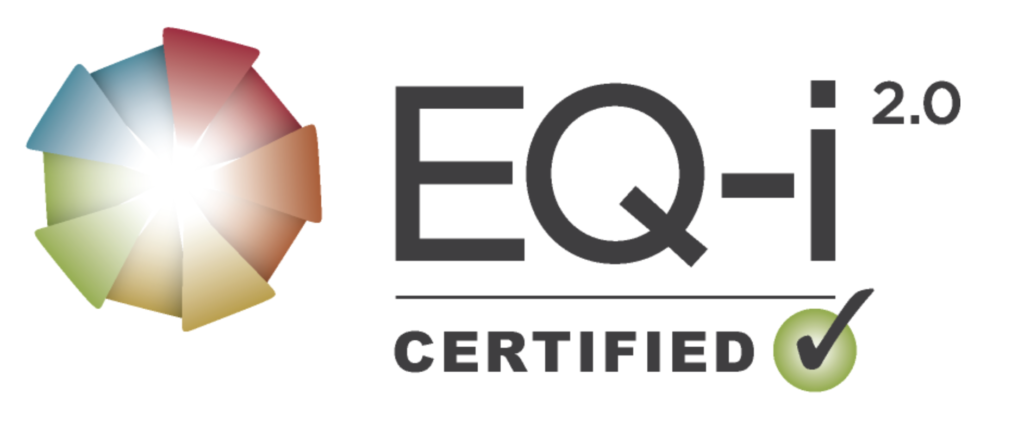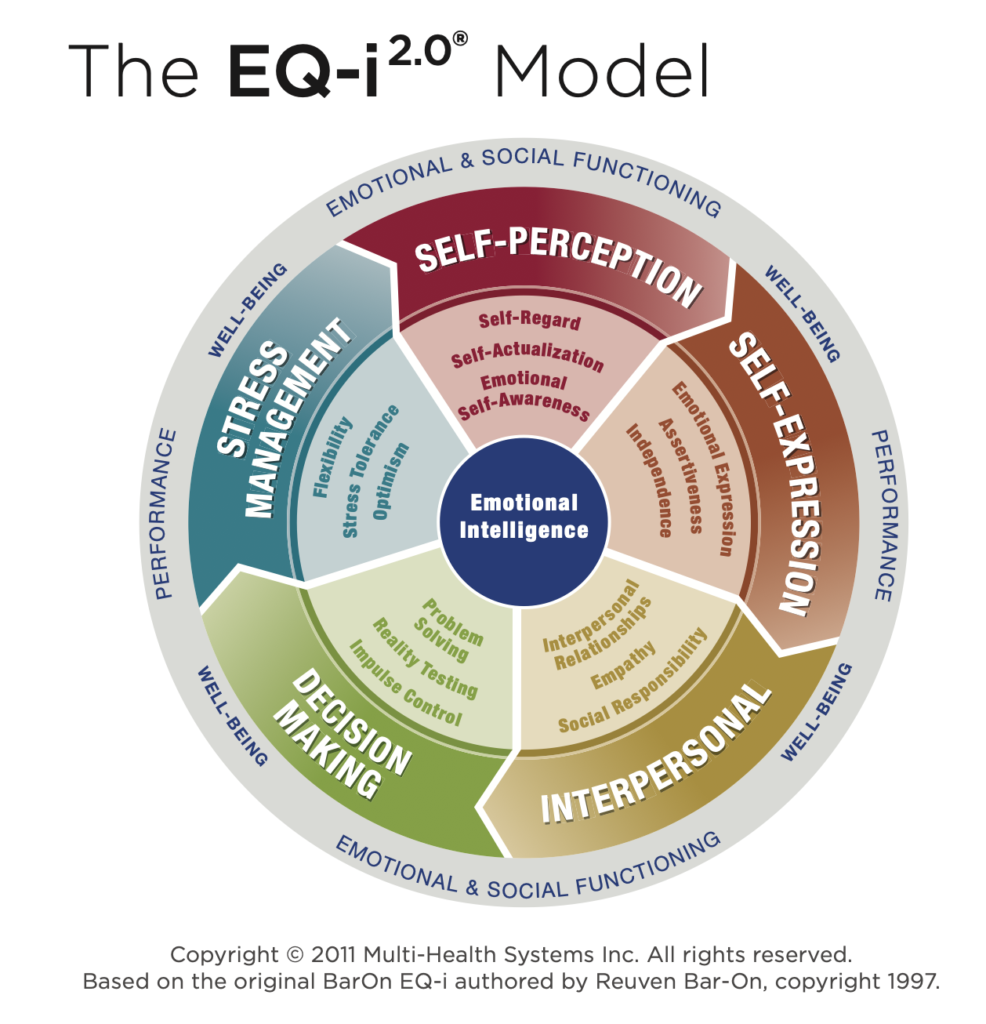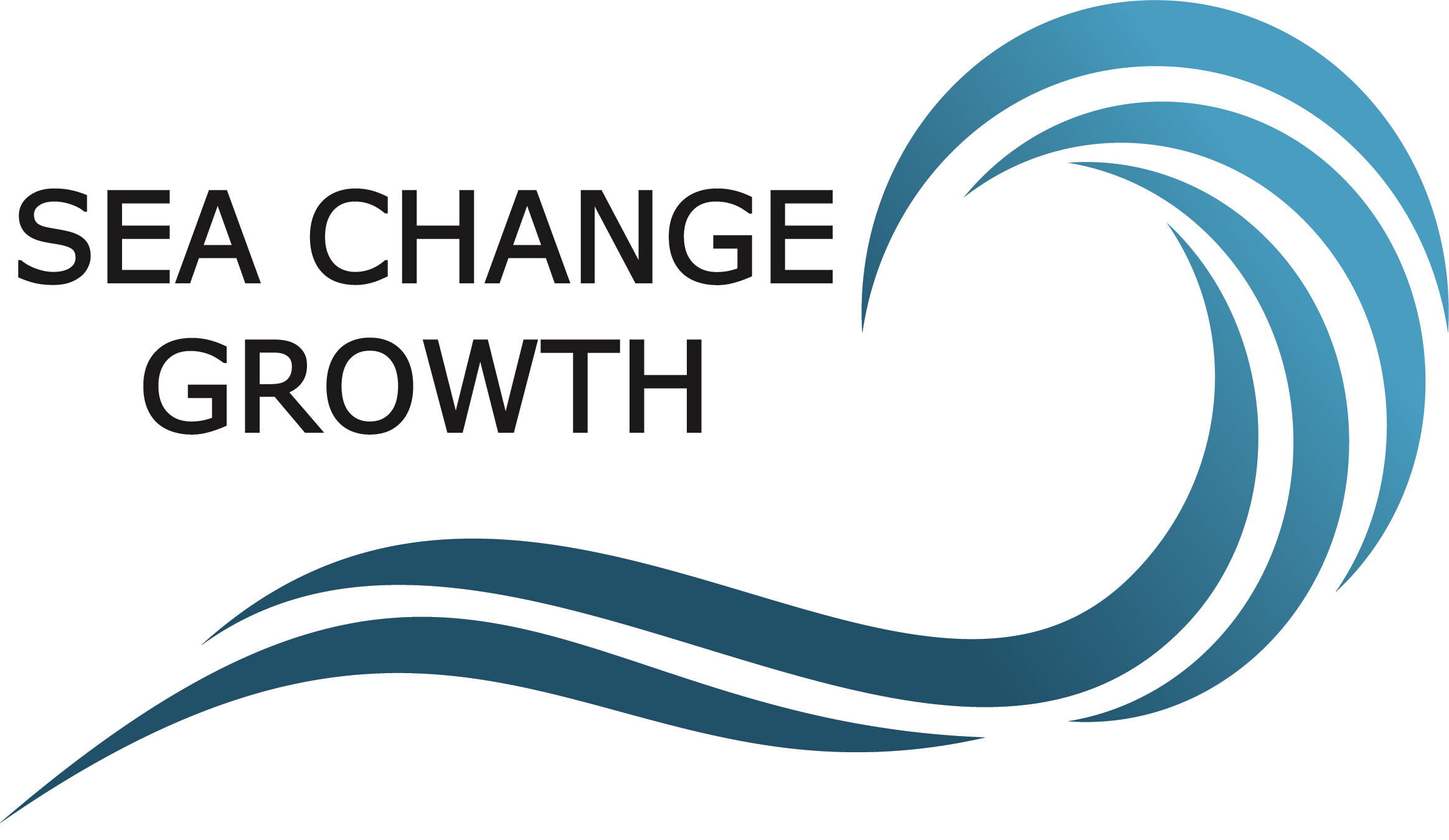
What is Emotional Intelligence (EQ) and why does it matter?
Emotional intelligence 2.0 (EQ-i 2.0) is a set of emotional and social skills that influence the way we:
- perceive and express ourselves
- develop and maintain social relationships
- cope with challenges
- use emotional information in an effective and meaningful way.
The result of well-developed emotional intelligence is healthy emotional and social functioning, which is linked to well-being (and happiness). This, in turn, impacts how we lead and perform. Assessing and evaluating an individual’s emotional intelligence can help establish the need for targeted development programs. Enhanced EQ can lead to dramatic increases in the person’s performance, interaction with others, and leadership potential. Supplemented by other sources of information, such as interviews, the EQ-i 2.0 can make recruitment and selection more reliable and efficient. A sound recruiting process leads to higher retention rates and reduced turnover, resulting in significant cost savings, improved employee effectiveness and increased morale. Learn More →

The EQ-i 2.0 Self-Assessment: Assess, Predict, Perform.
Emotional Intelligence 2.0 is a scientific approach to leadership development. For 20 years, organizations have trusted the science that underpins the EQ-i 2.0® to help improve human performance. The EQ-i 2.0 is a psychometric assessment which measures emotional intelligence (EI) and how it can impact people and the workplace. Being the first scientifically validated measure of EI, means you can count on the EQ-i 2.0 to add robustness and accuracy to your talent management initiatives. EQ-i 2.0 is a Level B assessment which means it can only be given by a certified administrator.
Applications of emotional intelligence include:
- Leadership Development
- Selection
- Organizational Development
- Executive Coaching
- Team Building
- Strategic Implications
- Student Development

EQ360 is the gold standard for Multi-Rater Assessments
The Multi-Rater Assessment (EQ360) Assessment combines your personal assessment with the perceptions of others who know you well. It requires both you and others to fill out the assessment.
The available reports are:
- Workplace Report: This report provides a comprehensive interpretation of an individual’s emotional intelligence; including an overview of the results, description of each of the 15 EQ-i 2.0 sub-scales and strategies for action.
- Leadership Report: This report uses a leadership competency framework to provide an interpretation of an individual’s emotional intelligence. Additionally the report includes a leadership potential page showing the link between the leadership competencies and emotional intelligence and leadership derailers.
- Group Report: This report combines the EQ-i 2.0 scores of individuals to allow you to make interpretations at the group or team level. This report presents an overview of group results to identify group strengths as well as the areas where the group as a whole can be more effective.
- EQ 360 Report: This report includes information about an individual’s self-ratings combined with the ratings of managers, peers and direct reports. The profile gap analysis page examines the level of agreement between the self-scores and the rater-group scores.
- EQ 360 Leadership Report: This report combines the existing Leadership and EQ 360 reports to offer a comprehensive view of an individual’s EI results through four key dimensions of leadership.
- Learn More →
EQ-Based Team Coaching Workshops
Is your mission and strategy being supported and implemented by high-performing teams and emotionally effective leaders? Have you mapped your business plan, challenges and opportunities in a manner that moves your teams forward to achieve cross-functional goals and KPIs? Sea Change Growth offers team coaching workshops designed to create high-performing teams by working through common team dysfunctions that limit goal achievement and team effectiveness.
Team coaching begins with EQ, high-performing team fundamentals and ground-rules. Once established, the teams work through business issues and challenges with the support of an experienced ICF team coach. Group coaching focuses on improving team dynamics, goal setting and attainment, and organizational effectiveness. Team coaching can be used on its own or to supplement The Emotionally Intelligent Leadership Series.
